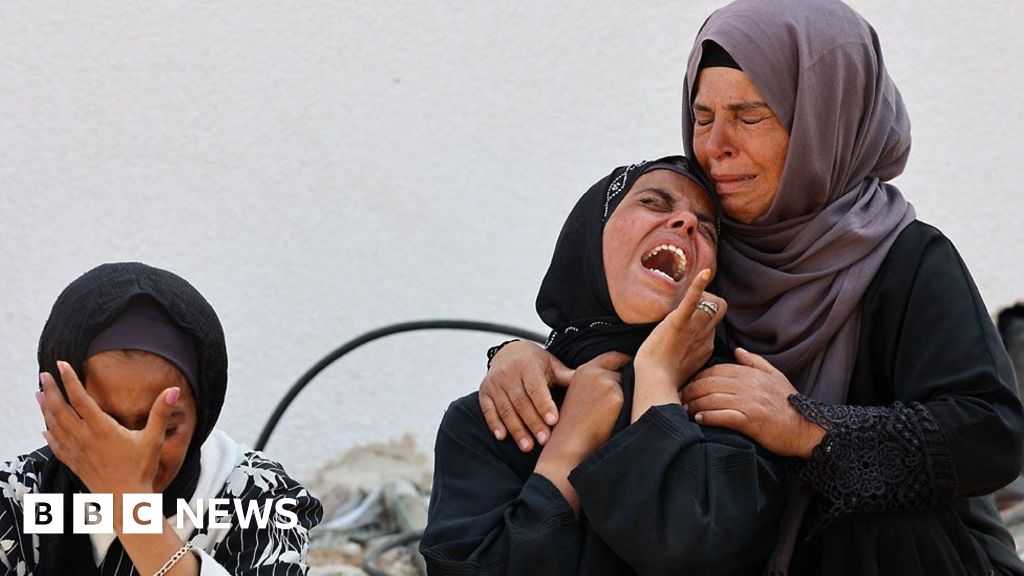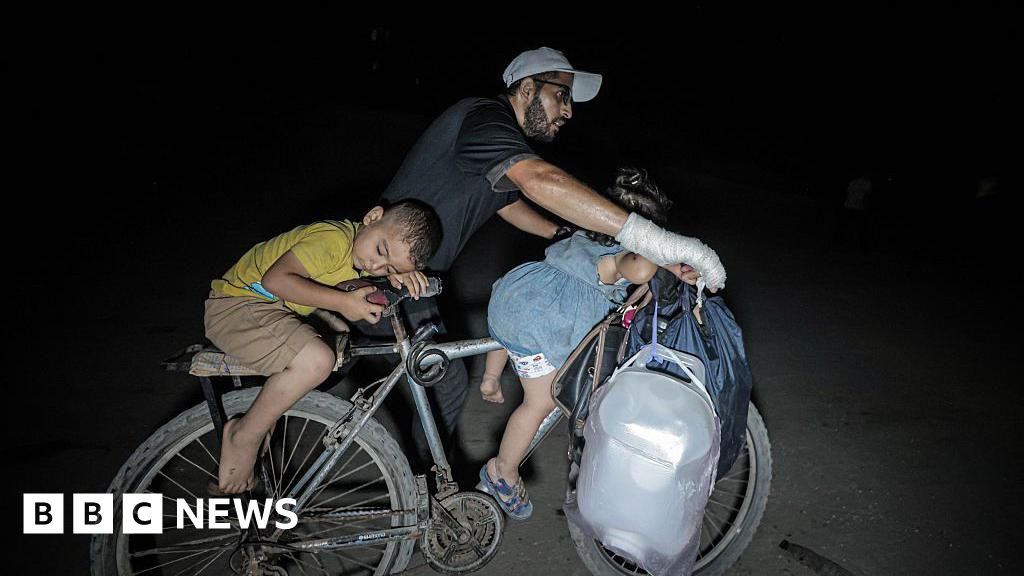Bishop Mutsaerts: Chesterton showed why abortion is the tyranny of the strong against the weak – LifeSite

Tue Sep 16, 2025 – 12:56 pm EDT
(LifeSiteNews) — I am an outspoken admirer of GK Chesterton. Chesterton (1874–1936) was an English writer and thinker known for his fierce defense of traditional morality and Christian values. Although abortion in Chesterton’s own time was neither legal nor widespread as it is today, he clearly addressed related themes in his essays and books: the value of every human life, the sanctity of the family, and the dangers of modern tendencies such as individualism and materialism.
In this essay I examine how Chesterton would respond to modern abortion laws that provide no legal protection to the unborn child. This stands in stark contrast to the Roman legal principle of the curator ventris, in which a guardian was appointed to safeguard the interests of the unborn child.
READ: Cardinal Sarah: Fiducia Supplicans ‘threatens unity of the Church,’ should be ‘forgotten’
Chesterton always began from the conviction that every human life has intrinsic value and dignity, as a creature of God. In his time he strongly opposed theories of eugenics and any philosophy that considered certain groups of people less human. He observed that such ideas could only achieve their “benefits” by denying humanity to an entire category of people.
Where eugenicists dehumanized the “inferior,” abortion does something similar with an even more vulnerable group: “the weakest and most defenseless people: the unborn.” Chesterton would emphasize that the unborn child is a full human being, and he spoke of abortion unequivocally as “the slaughter of unborn people.” Such strong language shows that he regarded abortion as a direct assault on human dignity and human life itself.
Because Chesterton was deeply religious, he regarded life – even in the womb – as sacred and willed by God. He would point out that no person or institution has the right to deliberately destroy an innocent human life. Following tradition, Chesterton believed that the right to life comes directly from God for every human being, including the child in the womb, and that no worldly reason (whether medical, social, or economic) can justify its destruction.
His moral outrage against abortion flows from this principle. He ridiculed a correspondent who advocated abortion to reduce poverty, saying that this man was “hopeful” about “the mass murder of unborn people,” while “despairing” at the idea of simply raising wages. With biting irony, Chesterton wrote of such reformers: “He is hopeful about female degradation, hopeful about human destruction.” This shows that Chesterton considered abortion not just a personal wrong but a social disease – a horror only permitted when society forgets the fundamental truth that every human life, however small or fragile, is infinitely valuable.
For Chesterton, the child was not only an individual with dignity, but also a source of meaning for parents and society. He had a deep reverence and near-awe for the miraculous vitality of each child. In his essay A Defence of Baby Worship he depicts how every baby, in a sense, recreates the world: “With every new baby the whole universe is put on trial again.” The child brings a freshness and wonder that even the greatest philosophers cannot equal – “as if with each of them all things are made new again,” he wrote, “and the universe is put on trial again.” This lyrical vision underscores Chesterton’s conviction that a new child is a unique and unrepeatable wonder, a fresh reaffirmation of life that continually jolts the adult world awake.
Chesterton even described birth as “the supreme adventure.” In Heretics he wrote: “The supreme adventure is being born.” He compared entering the family through birth to stepping into a fairytale: “When we step into the family, by the act of being born, we do step into a fairy-tale.” This shows how profoundly he regarded the arrival of a child as something almost sacred, full of mystery and possibility.
He considered the family the cornerstone of society and a “miniature society” that creates and loves its own new citizens. A child, for Chesterton, gave meaning to parenthood and linked generations: “The child is an explanation of the father and mother, and the fact that it is a human child is the explanation of the ancient human ties.” That an unborn child today is legally treated as if it were not a child or not a person runs counter to everything Chesterton stood for.
Chesterton also defended children in his critiques of social evils. In Eugenics and Other Evils he mocked the idea that some children could be “unwanted.” He would find it utterly unacceptable to sacrifice the child itself in the name of prosperity or “quality of life.” Modern policies that choose to eliminate unborn children rather than solve social problems he would consider a perversion of justice and reason.
Chesterton was critical of many aspects of modernity, especially when they clashed with eternal truths. He once described the modernist mentality as that of someone who has so much pity for animals, for instance, that he is willing to sacrifice human lives – a disturbing inversion of values. As early as 1914 Chesterton predicted: “Wherever there is Animal Worship, there will be Human Sacrifice.” By this he meant that a sentimental modern tendency to worship abstract ideals – for example, invoking “women’s rights” while ignoring the rights of the child – often coincides with indifference or cruelty toward vulnerable people.
In contemporary culture we see echoes of this: people may become more outraged over animal cruelty or environmental issues than over the mass abortion of unborn children. Chesterton would call such priorities insane – a sign that modernity has lost its moral compass.
READ: USCCB remains silent on Charlie Kirk in contrast to effusive response after George Floyd’s death
Another hallmark of modern times that Chesterton harshly criticized is extreme individualism and materialism. He saw that in the name of “freedom,” people often imprisoned themselves in superficial pleasures. Nowhere is this clearer than in his essay Babies and Distributism, where he mocked couples who avoided children in order to have more time and money for entertainment and luxury. He wrote that his contempt reached its boiling point “when I hear the common suggestion that people will have no children in order that they may be free to go to the theatre, or free not to be interrupted in their careers.”
He deliberately put “free” in quotation marks, for he did not consider this true freedom. “What makes me want to walk over such people as over door-mats is that they use the word ‘free.’ At every such act they chain themselves to the most servile mechanical system humanity has ever endured.” Instead of embracing the creative, life-giving freedom of parenthood, they subject themselves to what Chesterton called the compulsion of consumption and technology – careers and fashions imposed by anonymous powers. This is false freedom: trading humanity’s deepest calling (to pass on life) for fleeting pleasures.
Chesterton contrasted this false freedom with the true freedom a child brings. “A child is the very sign and sacrament of personal freedom,” he declared. It sounds paradoxical, since a child brings responsibility and limitation to parents. But Chesterton saw it differently: a child is a new will, “a fresh free will added to the wills of the world,” which parents freely bring forth and freely protect. It is their own creative contribution to creation – a unique act not produced by any social “mastermind” or technocrat, but by themselves and by God. And this new life is “far more beautiful, wonderful, and astonishing” than any invention or amusement machine modern civilization can produce.
That modern people dare to reject this wondrous gift Chesterton saw as a symptom of moral blindness. “When people no longer feel how extraordinary this is, they have lost all appreciation for primary things; they have lost all sense of proportion,” he warned. In unusually harsh words Chesterton said such people “prefer the very dregs of life to the fountains of life.” In other words, they choose hollow, repetitive, futile pleasures of a tired consumer society over the fresh vitality a new child brings. This is not progress but decadence.
Chesterton already saw in his time that the so-called “progressive” idea of birth control was a slippery slope: “Birth control marches through the modern state and leads the march of progress from abortion to infanticide,” he wrote mockingly. He foresaw that once one boundary (preventing birth) was crossed, the next (destroying existing life) would soon follow – a prediction that sounds eerily prophetic in today’s debates about abortion and even infanticide.
Chesterton would view today’s abortion culture as a corruption of true progress: not a triumph of choice, but a capitulation to selfishness and despair disguised as “freedom.” True freedom always serves life. It is telling that in Irish Impressions he summed up the essence of liberty: “the only object of liberty is life.” Freedom has no meaning if it is used to destroy life; its purpose is precisely to make life possible and to protect it.
READ: Pope Leo XIV needs to correct the many errors of Laudato Si’: Here’s why
Chesterton believed that human laws derive their justice from a higher moral awareness, from the moral laws of good and evil that are not subject to change. When a society denies such fundamental truths, it risks not evolving but degenerating. He once remarked that civilizations collapse as soon as they forget the most obvious things. One of those obvious truths is that killing innocent people is wrong.
In the case of abortion, modernity seems to have forgotten precisely this self-evident truth: namely, that a baby in the womb deserves the same protection as a baby in the cradle. Chesterton would point out that Roman law – however pagan that civilization was – at least recognized the principle of the curator ventris, the “guardian of the womb,” appointed to protect the rights of the unborn child. There were legal arrangements in earlier times showing “public concern for the life of the child in the womb,” and positive law “reserved rights” for that child, for example inheritance rights and bodily integrity. How ironic, Chesterton would note, that the modern world – boasting of its humanity and progress – grants the unborn less legal recognition than did an ancient pagan civilization.
In Chesterton’s view, a law that does not protect the most defenseless member of society is not a just law. He believed that the authority of the state is limited by higher moral law. Thus, when the powerful begin deciding who may live and who may not, this is not progress but tyranny: “Eugenics and abortion amount to the tyranny of an elite deciding who shall live and who shall die.” That elite, he added, often hides behind scientific or economic arguments, but in essence it is a matter of brute power.
In abortion, Chesterton saw a coalition of the strong against the weak: the adult individual (perhaps supported by medical “experts” or legislation) against the voiceless child. This runs counter to Chesterton’s conviction that civilization is measured precisely by how it protects the weakest. The weaker and more helpless the legal subject, the greater everyone’s duty to protect it.
For Chesterton, the family is the first and most important legal community, and the unborn child is already part of that family. Law should serve it, not act as master deciding whether that new family member may live. Already in his time he saw trends in which the state or so-called “science” elevated itself into an idol at the expense of humanity. “It is the other way around in the modern world: it is not religion that persecutes science, but science that tyrannizes through government,” Chesterton wrote in 1922. He was referring to eugenics legislation then emerging, but the same logic applies to abortion laws. A cold, materialistic reasoning – whether in the name of science, health, or women’s rights – that declares an unborn child not a person with rights he would consider a terrible bureaucratic horror. It is the triumph of what he mockingly called “terrorism by third-rate professors”: technocratic nonsense that undermines fundamental moral intuitions.
At the deepest level, Chesterton would assert that no human authority can give the right to deliberately kill an innocent person. Legislation that allows abortion distorts the essential relationship between freedom and life. As noted earlier, he put it this way: “the only object of liberty is life.” Freedom that does not protect, but abandons, the unborn child – the most innocent life imaginable – is in Chesterton’s eyes a freedom that has lost its purpose and its morality. He would see today’s situation as regression disguised as law.
Where authentic law once tried to echo the vox Dei (the idea that every human is given by God), modern abortion law broadcasts the message that some lives do not matter. This is not only unjust but also unreasonable. It is the ultimate loss of common sense that characterized many of what Chesterton called the “heresies” of his modernist contemporaries.
Given the above, it is clear that Chesterton would react with sharp disapproval and moral indignation to abortion laws that offer no protection to unborn children. On the basis of his deep respect for human dignity, his love for the child and the family, and his aversion to modern selfishness, he would brand such laws as signs of civilizational decay.
Every great civilization declines by forgetting the obvious truths, and the truth that an unborn child is a human being with rights is precisely such an evident truth. To erase it, he would argue, is a dangerous mystification. Chesterton would call on the modern world to recover its moral compass. Instead of congratulating itself on supposed progress, society should look in the mirror: what kind of progress is it, if even the most defenseless are no longer safe in the most natural haven – the mother’s womb?
READ: Fr. Mike Schmitz on Charlie Kirk assassination: ‘Proper human response to evil is anger’
From Chesterton’s writings emerges the portrait of a man who stood up for the smallest, poorest, and most vulnerable people. He did not see the unborn child as a rightless clump of cells, but as “a fresh free will,” a new adventure for humanity, and a promise that the world may go on. The loss of legal recognition for that young life he regarded as a deep disgrace. He would probably respond with his characteristic blend of logic and sarcasm: if society believes that comfort and choice are so absolute that babies may be killed, then why not be consistent? “Let all the babies be born. Then let us drown those we do not like,” he wrote bitterly, to expose the absurdity of such reasoning. Of course, that suggestion is horrific – and that is precisely Chesterton’s point: only a mystical and moral objection prevents us from drowning born babies, and the same objection applies to killing the unborn.
Finally, Chesterton would remind us of the duty to defend the family and life against such assaults. “There is an attack on the family; and the only thing you do with an attack is fight it.” He would see the loss of legal protection for unborn life as part of that attack on the family and on human dignity. His judgment would leave no doubt: modern abortion laws are evil, unjust, and contrary to both common sense and natural law. Only by returning to what he called the “obvious things” – the self-evident truth that every human life, from conception onward, is a gift of immeasurable value – can our society recover both sanity and justice.
For in Chesterton’s eyes, the unborn child is nothing less than God’s opinion that the world should go on. It is up to our sense of justice and our laws to affirm and defend that opinion.
+Rob Mutsaerts
Auxiliary bishop of diodes of ‘s-Hertogenbosch (The Netherlands)
Recent Top Stories
Sorry, we couldn't find any posts. Please try a different search.











